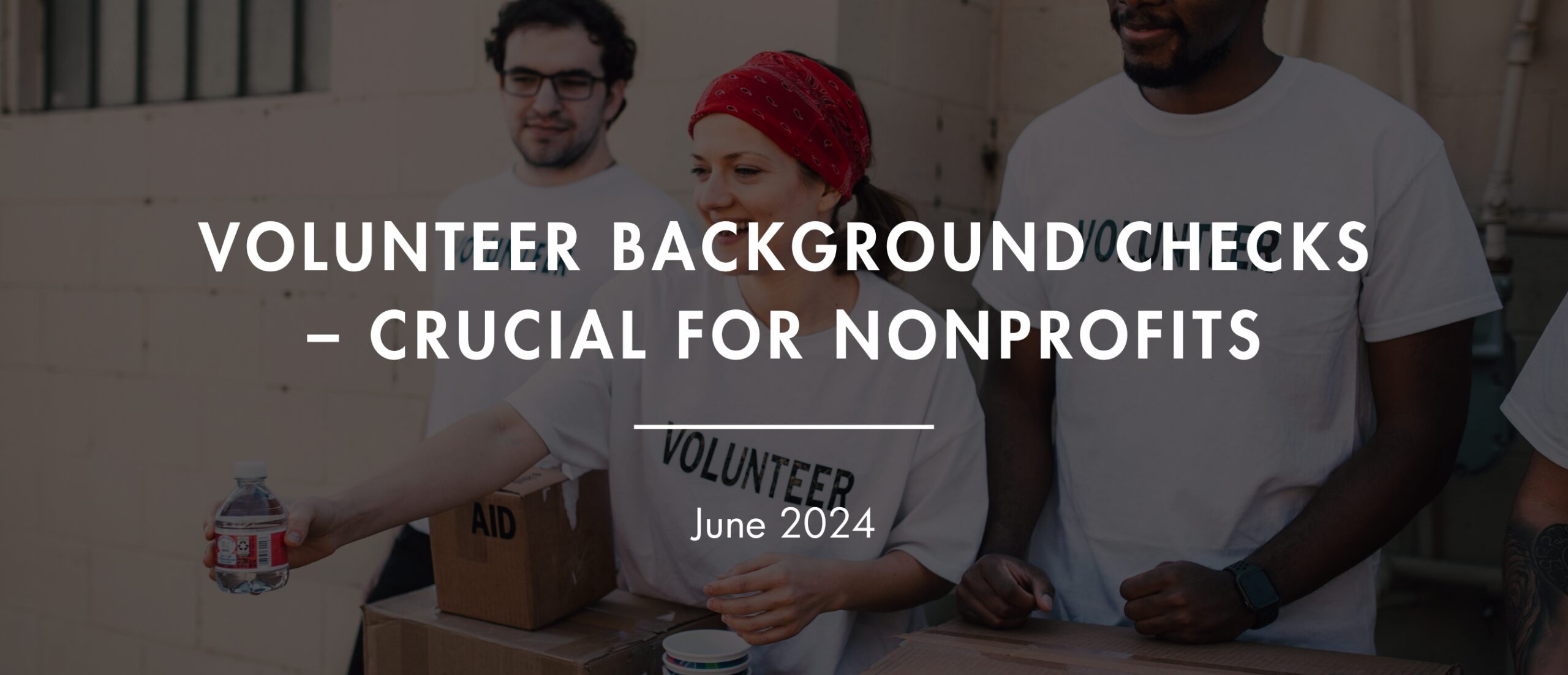Volunteer background checks are a crucial yet sometimes overlooked aspect of nonprofit operations. In an era where trust and safety are essential, ensuring the integrity of volunteers through thorough vetting processes is not just a precaution but a necessity. The significance of these checks extends far beyond merely confirming the honesty of a volunteer; it is about safeguarding the nonprofit’s mission, protecting its beneficiaries, and maintaining the trust of its stakeholders.
Nonprofit organizations often serve vulnerable populations, such as children, the elderly, and individuals facing various forms of hardship. Unfortunately, these groups can also attract individuals with malicious intentions, such as predators looking to exploit their positions of trust. By conducting background checks, nonprofits can screen out individuals with histories of inappropriate or harmful behavior, thereby reducing the risk of abuse and exploitation. This vetting process acts as a critical barrier, ensuring that those who are given access to vulnerable populations are trustworthy and committed to the organization’s ethical standards.
Moreover, the reputation and brand of a nonprofit are built on trust and reliability. A single incident involving a volunteer with a problematic background can severely damage the organization’s reputation, leading to a loss of confidence from the public, donors, and beneficiaries. Nonprofits operate in a delicate ecosystem where credibility is hard-won and easily lost. Regular background checks help maintain this credibility by demonstrating a commitment to due diligence and responsibility. They reassure stakeholders that the organization takes its duty of care seriously and is proactive in protecting its community.
The protection of employees and other volunteers is another crucial aspect of background checks. The nonprofit sector thrives on collaboration and mutual support among its members. Ensuring a safe environment is key to fostering this collaborative spirit. By vetting volunteers, nonprofits can minimize the risk of internal conflicts and inappropriate behavior, which can otherwise disrupt the harmony and productivity of the workplace. Volunteers and employees can perform their duties more effectively when they feel secure and supported by robust safety protocols.
Furthermore, conducting background checks can bolster donor confidence. Donors are often highly invested in the causes they support and expect their contributions to be managed responsibly. Knowledge that an organization conducts thorough background checks can reassure donors that their funds are being used in a secure and ethical manner. This assurance can translate into sustained or increased financial support, as donors feel confident that the organization is minimizing risks and safeguarding its integrity.
In addition to these benefits, background checks can also enhance the overall effectiveness of volunteer programs. Volunteers who pass the vetting process are more likely to be reliable and committed, leading to more productive and harmonious volunteer teams. This reliability is crucial for maintaining consistent support for the nonprofit’s activities and initiatives, ensuring that the organization can meet its goals and serve its community effectively.
Implementing a robust background check process does not come without challenges. It requires time, resources, and sometimes navigating complex legal and privacy considerations. However, the benefits far outweigh these challenges. Many nonprofits have found that partnering with specialized reliable background screening companies can greatly streamline the background screening process. These specialized background screening companies can provide digital methods that dynamically provide the required disclosures and authorizations, based upon the state where the nonprofit is located. This helps ensure thorough and compliant checks while allowing the organization to focus on its core mission. Plus, many of these background screening companies also offer Continuous Criminal Monitoring, so that the nonprofit can not only initially screen their applicants, but also have a system in place to monitor their volunteers (and/or employees) for future criminal convictions that could threaten their organization.
It is clear that volunteer background checks are a vital component of nonprofit operations. They protect vulnerable populations from potential harm, safeguard the organization’s reputation, ensure a safe working environment, boost donor confidence, and enhance the effectiveness of volunteer programs. In a sector where trust and safety are essential, background checks are not just an administrative task but a cornerstone of responsible and ethical nonprofit management. By prioritizing these checks, nonprofits demonstrate their commitment to protecting their communities and upholding the highest standards of integrity.
Posted by: Rudy Troisi, L.P.I., President and CEO, Reliable Background Screening
Copyright © 2024, Reliable Background Screening, a Division of Marcett, Inc. All rights reserved.


